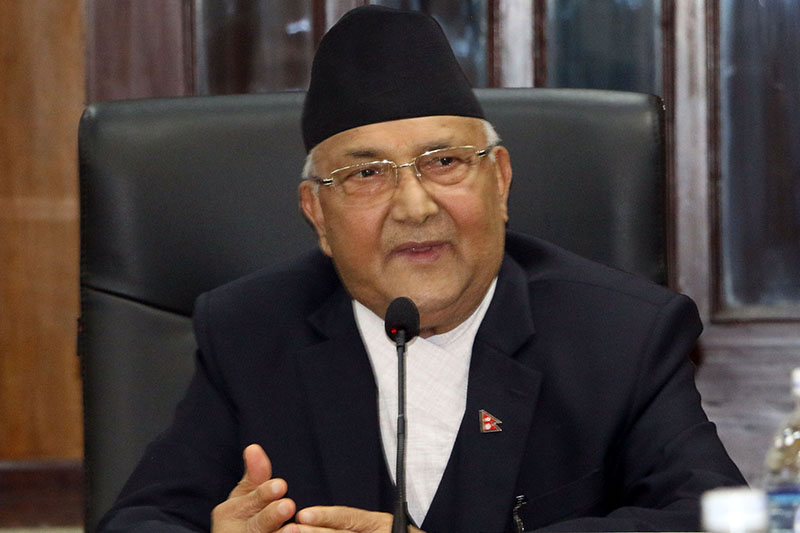Commercialisation key to drive agriculture sector, says PM Oli
Kathmandu, March 10
Prime Minister KP Sharma Oli has said that the government is committed to drive the country’s agriculture sector towards commercialisation and also make it technology-driven.
Addressing the international conference on Food Sovereignty and Peasants’ Right, organised by the National Farmers’ Commission in Kathmandu today, PM Oli stated the country cannot be prosperous without commercialisation of agriculture and expressed his commitment to introduce necessary policies and programmes to modernise the sector.
According to him, the government will encourage small farmers towards commercial farming through effective programmes and policies.
“As a majority of our population is engaged in the agriculture sector, it is crucial to modernise the country’s agricultural system in a bid to transform the country both economically and socially,” the prime minister said, adding that all stakeholders of the agriculture industry need to work together to modernise the agriculture sector and encourage the use of agricultural technologies to raise the production base of agriculture goods in the country.
By doing so, the country can be self-sustained in agricultural products, he reiterated.
Similarly, Prime Minister Oli also stressed on the need to promote agriculture cooperatives in the country which he believes will be beneficial for the farmers. “It is only through collective farming that the agriculture sector can grow in a sustainable manner,” he added.
Meanwhile, the prime minister also requested foreigners to invest in the agriculture sector including in vegetable and fruit farming, herbs and dairy production citing that these areas have tremendous investment opportunities.
PM Oli said that the outcomes of this three-day event would help the government while developing the roadmap for the growth and development of the agriculture sector.
According to Chitra Bahadur Shrestha, chairman of NFC, the three-day event will have 15 working papers related to food sovereignty and as many as 350 participants from Nepal, Bangladesh, China, India, Indonesia, Malaysia, Pakistan, the Philippines, Sri Lanka, South Korea and Vietnam are participating in the event.






